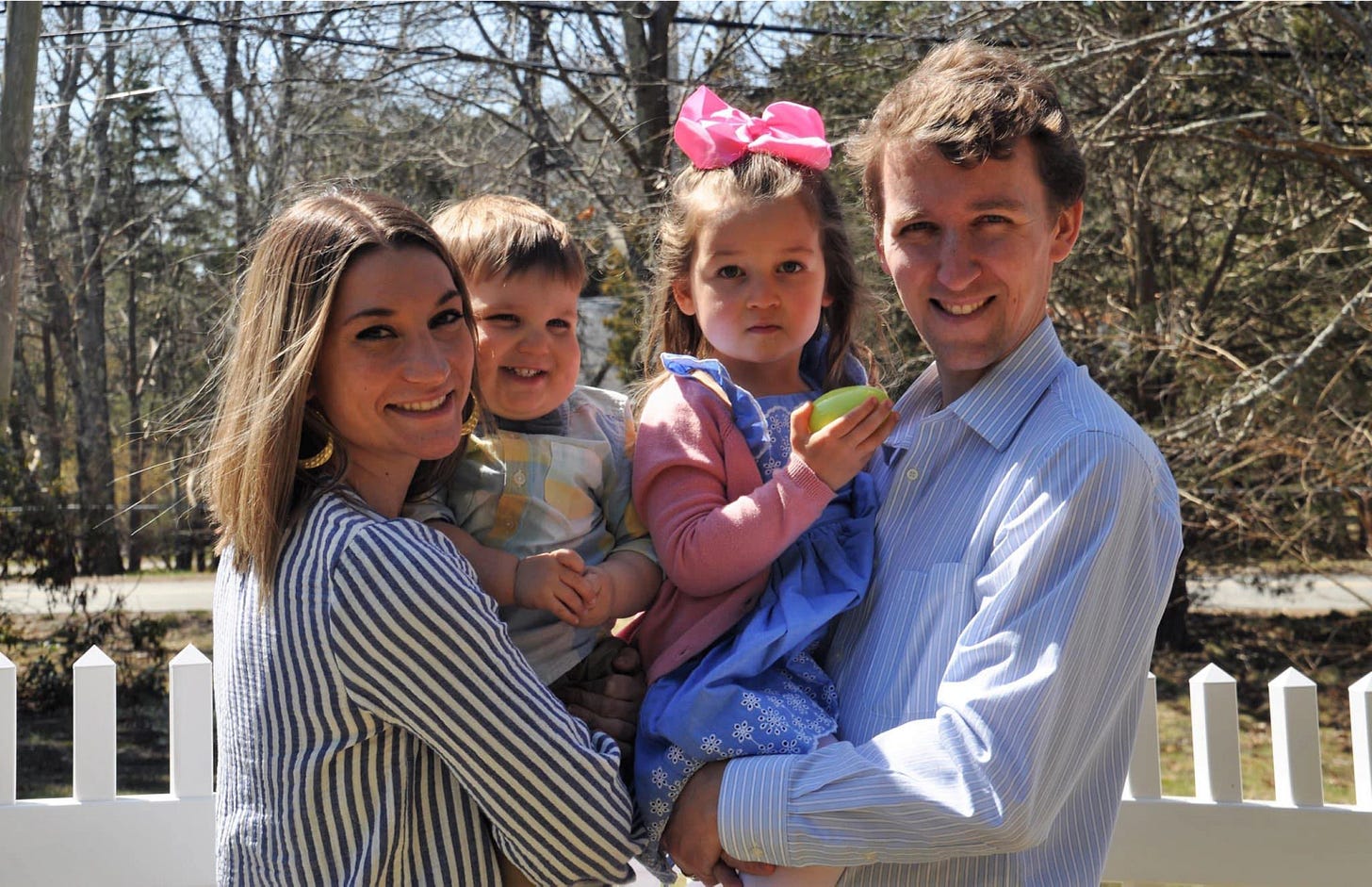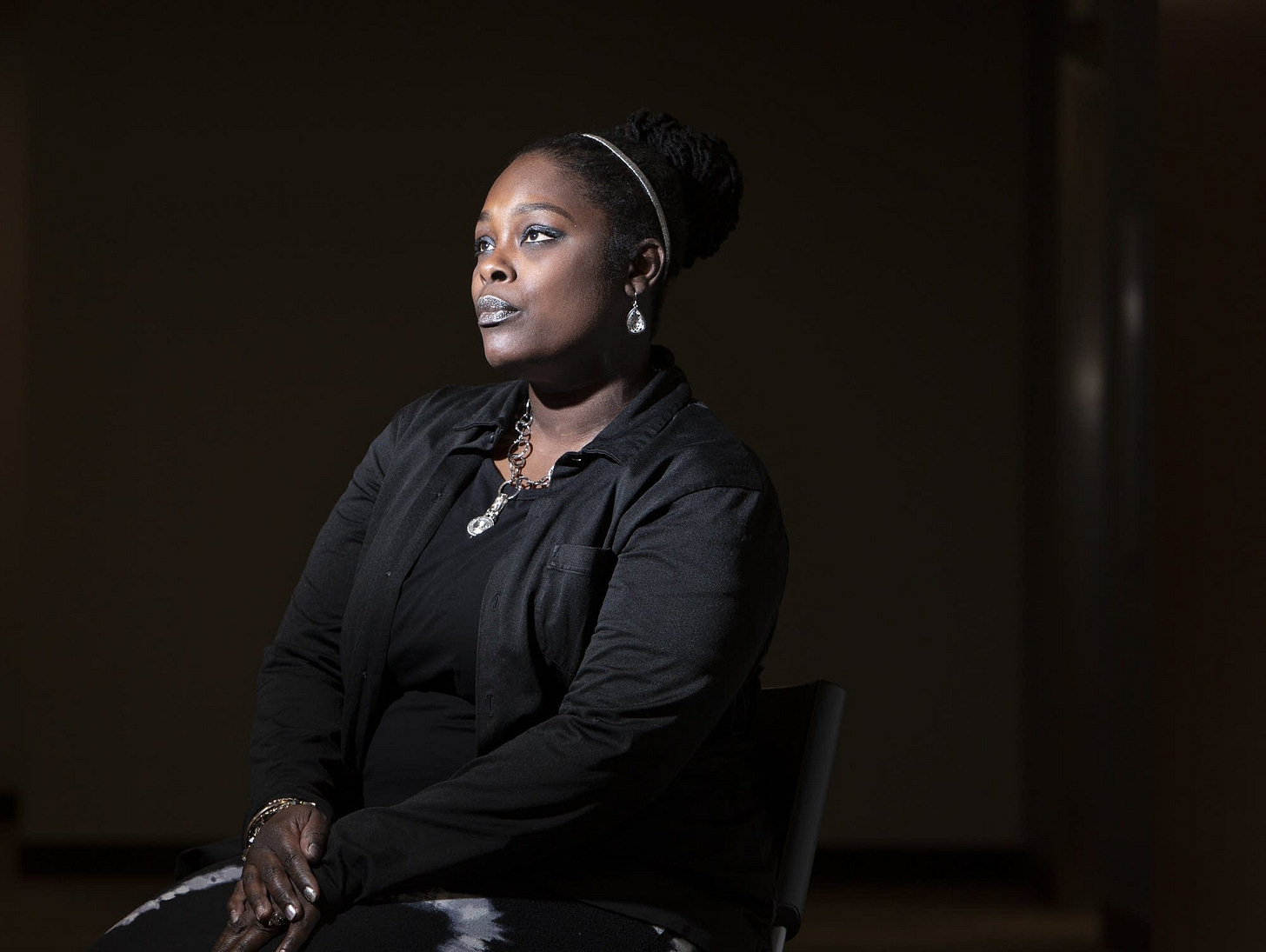Who protects women like Lindsay Clancy?
Postpartum psychosis is a symptom of a culture that does not honor or protect new moms.
I can’t stop thinking about Lindsay Clancy, the postpartum nurse who strangled her three children and then unsuccessfully tried to kill herself last week in Duxbury, Massachusetts.
Her husband asked the public to forgive his wife, as he has. “The real Lindsay,” he said in a statement, “was generously loving and caring towards everyone — me, our kids, family, friends, and her patients. The very fibers of her soul are loving. All I wish for her now is that she can somehow find peace.”
I don’t doubt that Lindsay loved her kids. The speculation is that she was suffering from postpartum psychosis. I don’t doubt that either. When these types of unthinkable deaths occur there is often a loving mother whose brain has betrayed her and her family.
We don’t know what was happening in Lindsay's head. But here’s what we know:
She was 7 months postpartum in a country that offers women no material support after giving birth. That mothers are expected to return to work right around the time their infants have learned how to smile. We know that the majority of women are only given ONE postpartum doctor’s visit from their insurance carriers.
We also know that in our medical system--created by men, dominated by men, upheld by men-- women are constantly having to convince practitioners who have never experienced birth about what is happening inside their heads. In her book, Mom Genes, Abigail Tucker describes the sobbing phone call she finally made to her new OB-Gyn after feeling a crazed, immense sorrow for months after her third son was born.
“[The OB] listened to my story, and then said coldly: “You’ve been depressed before, haven’t you.?
“I guess so” I blubbered in reply.
Clearly this was the out the doctor needed, as my answer translated somehow into ‘not his problem.’ He rattled off the phone number of a therapist in a nearby city and hung up.
His office never contacted me again.”
At the moment, Tucker could have been any mother in America. That could have been me or Lindsay.
What will happen to Lindsay? She will likely be prosecuted and will have to face the legal standard for insanity established in 1843 (by, you guessed it, men!). She’ll need to prove to a criminal court that not only that she was psychotic enough to kill her children but so psychotic that she didn’t know it was wrong.
Is there a better place for Lindsay than the criminal courts? Filled with judges and juries who hold their own prejudices on motherhood and on illness? Humans are communal animals, we were meant to raise our children in communities. What do our communities and peers offer mothers in crisis?
*
Naomi Gaines-Young, a Black woman, was 24 when she jumped off a bridge into a river with her two infant twins because she thought government operatives were killing Black mothers and their children. Before the twins were born Naomi had attempted suicide She was put on anti-depressants and became a devoted student of Black liberation theology.
When Naomi gave birth by C-section to her twins she later told reporter Rachel Aviv that she felt her birth was “unnatural."
“Babies shouldn’t be born in this fashion, so far removed by anything human.” She thought maybe a shadowy external force had implanted the babies in her body.
When Naomi was rescued from the river and interviewed by psychiatrists, she said she felt terrified that her children's lives would be filled with “inferiority, indifference, and ridicule.” She explained, “ I did not want them to die. I just wanted them to live better.”
Naomi wanted to plead not guilty by reason of insanity but her lawyer told her that in 20 years of trying cases, he never saw it work. She took a plea deal for 15 years.
I think of Naomi, feeling so separated from her babies during birth and how so many moms suffer traumatic births, devoid of the feel good hormones that physiologic birth and subsequent breastfeeding provide. Often separated from their babies, they feel depressed, isolated and shameful that they don’t feel a bond with their baby and that absolutely affects breastfeeding which has proven to prevent and help postpartum depression.
Would outcomes look different if the world of medicine and law was dominated by women instead of men? What would we do with mothers like Lindsay and Naomi? Could we protect them?
*
It’s very on trend right now to talk about “mental health” and “de-stigmatize mental illness.” But what does mental illness look like? If you check your Instagram feed, mental illness in motherhood is often portrayed as a quirky personality trait, “OMG, I have such OCD!” or “feeling triggered by my husband’s weaponized incompetence.” With a chorus of commenters encouraging mothers to give up anything that causes them to feel shame, judged, stressed, hassled or slightly inconvenienced. Your mother in law said something dumb about screen time? That boomer is toxic, cut her out!

What about the mental illness that doesn’t make the grid? The kind that’s too ugly, too gross. Like a mother who is two months postpartum and can’t find the will to leave her bed to go to the bathroom and soils her sheets?
As a lactation consultant, I, of course view this whole conversation through the frame of the mother baby dyad. What always jumps out at me is how often depression and breastfeeding are lumped together. Mothers will post that “quitting breastfeeding cured my depression.”
First of all, if breastfeeding caused depression we would have lost this planet to the lizards a long time ago. It typically does the opposite, basting the brain in much needed dopamine.
Across social media quitting breastfeeding is framed as some sort of an empowering step. But it’s a step away from millions of years of evolution, from all the neurochemicals that flood your brain with a love cocktail, from the perfect food for your baby, from the foundation of the mother and baby relationship. And what is that step towards? What is on the other side waiting for you?

I think about Catherine Cho and her book Inferno, when her infant was 3 months old she had an acute psychotic episode where she was hallucinating that her child might have been a demon. She was a nursing mother institutionalized in a psychiatric hospital away from her baby. In her fog and confusion, she would feel her breasts swell with milk and remember her baby, Cato. It’s only time she would think of her baby fondly during her hospitalization.
“I tried to lie in the bed, but instead I paced the room… how much time had passed? My hospital gown was wet in front. What was that? It was milk. I pressed my arms against my chest; my breasts ached. Where was Cato? He must be hungry. How long had it been since he’d fed. I needed to get to Cato.”
An older woman in the unit would remind her Catherine to hand express to keep up her supply.
“Breasts, breasts” she shouted, gesturing to press them. I did so gingerly, “ You have to get better so you can go home to your baby.”
Catherine got on the right medication and got better. She was reunited with her baby but the dyad was ruptured and she had to work hard to reestablish the bond with her son. I wonder if it was their nursing relationship that served as a touchstone to reality for Catherine. If her milk stained gowns was talisman that kept her tethered to her son and help pull her out of the void.
In other cultures postpartum is a distinct time to cocoon the new mother so she can gather back her strength.
Throughout Central America, new mothers spend 40 days in bed. Grandmothers, relatives, and sobradoras (birthworkers) bathe, massage, and feed her. In China, there’s the Sitting Month: 30 days of rest, bundled up in warm clothes, food that isn’t too cold or too hot. In India, it’s tradition that a new mother stays with family for 3 months, eating nourishing foods, resting, and being tended to. Mothers aren’t expected to host in-laws, send out baby pictures, clean, tend to their other children, let alone work. Other cultures intuitively recognize that this colossal shift in a woman’s body and mind needs to be respected.
These rituals are an acknowledgement that a new mother is vulnerable and depleted, like a priestess drained after performing her sacred rites. These are periods of social seclusion and protection for a new mom.
We are without these rituals and our new mothers are without protection.








My heart aches reading about these stories.
From memory, I don't recall my OB telling me about signs of Postpartum Psychosis, only Depression and Anxiety. I am currently 10 months postpartum. I'm glad to know about it now, from my 21st century online village.
This one 🥺